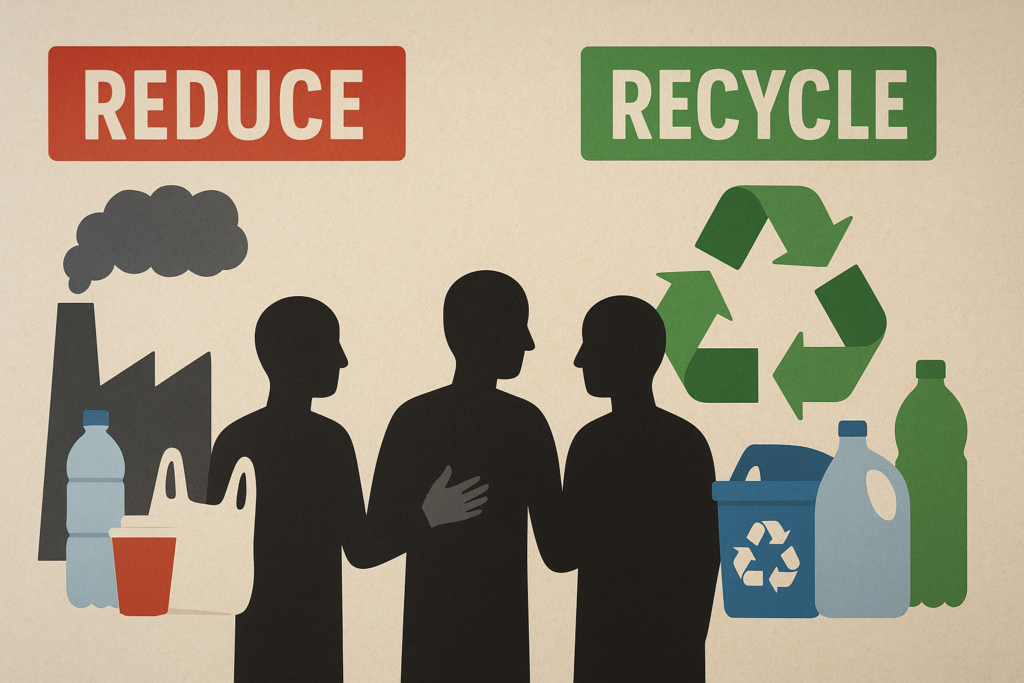
Sunflower losses are a symptom of chemistry, not “just white rot”
Greening agro is not a fad, but a reaction to the fact that excess nutrients are becoming a source of soil and water pollution, and biodiversity loss.
On August 15, 2025, negotiations in Geneva, which were supposed to be a historic step towards a global agreement to combat plastic pollution, ended. Instead, the world got déjà vu: the sixth round of meetings in three years ended in failure. More than 180 countries, hundreds of companies and NGOs have still not been able to agree on how to stop the flow of plastic that is choking our oceans, soils and air.
The essence of the process is both simple and grandiose: the world is trying to create a legally binding agreement that will reduce plastic production, limit dangerous polymers, and establish fair rules for waste management. The idea was born back in 2022 and was supposed to repeat the success of the Paris climate agreement – only for plastics. But in practice, the negotiations have turned into an arena of confrontation between two camps.
On the one hand, there is a coalition of “high ambitions” that includes the EU, Norway, Rwanda, and many African and Latin American countries. They insist that we must fight not only waste, but also the source of the problem: reducing the production of primary plastic.
On the other hand, the US, Saudi Arabia, Kuwait, Russia and a number of other petrochemical countries. Their position is simple: production should remain intact, and the emphasis should be on recycling and waste management. To translate into everyday language: “We will continue to produce mountains of plastic, and you figure out how to dispose of it.”
Every minute, the equivalent of one garbage truckload of plastic enters the ocean. Its breakdown products — microplastics — are already found in drinking water, air, and the placentas of newborns. And it’s not just about ecology: it’s a matter of health, economics, and even geopolitics. After all, plastic is directly linked to the oil and gas industry, and therefore to energy security and the interests of the largest corporations.
The frustration among participants is immense: environment ministers accuse a “small group of countries” of blocking progress, NGOs talk of capitulating to industry, and scientists warn that time is against us. Inger Andersen, head of the UN Environment Programme, diplomatically stated: “We have not succeeded, but we will continue.”
In fact, the world is at a crossroads. Either countries will agree to abandon the principle of consensus (where one “no” destroys everything), or a “agreement of the willing” will emerge—an alliance of states ready to move forward without a blocking minority.
The failure of the Geneva talks has shown that plastic is not just an environmental problem, but a litmus test of global policy. While leaders argue about numbers and deadlines, the oceans continue to fill with waste and children breathe air laced with plastic bag particles.
The world expected an agreement from Geneva. Instead, it got another deadlock. But a deadlock could become a crossroads. The only question is whether states will have the courage to move from beautiful slogans to real restrictions.


Greening agro is not a fad, but a reaction to the fact that excess nutrients are becoming a source of soil and water pollution, and biodiversity loss.

Digestate with biochar and glauconite is an innovative organo-mineral composite for reducing nutrient losses, prolonged plant nutrition, and increasing soil fertility.

Soil degradation and water pollution are increasingly merging into a combined environmental crisis, especially in arid and post-industrial regions.